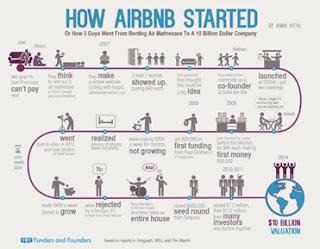Coding will become part of the basic school education curriculum from this academic year, the Minister of Communications, Mrs Ursula Owusu Ekuful, has announced.
Coding class, which involves the use of computer programming to create computer software apps and websites, will be compulsory for basic schools in the country.
This follows the review of the educational curriculum for which teachers are currently being trained.
She made the announcement at the Open Day event for awardees of the Western Region Girls in Information Communication Technology (ICT) in Accra Monday.
It aimed at encouraging and empowering girls and young women to consider studies and careers in the growing field of ICT, to enable both girls and technology companies to reap the benefits of greater female participation in the ICT sector.
This year’s programme provides mentorship for 60 pupils who were selected among 600 others from various metropolitan, municipal and district assemblies in the Western Region.
While in Accra, the girls will be given the opportunity to meet female IT professionals at their places of work that is MTN, Vodafone, Airtel-Tigo, American Tower Company (ATC) and National Information Technology Agency (NITA)
Training teachers
Speaking to the Daily Graphic, Mrs Owusu Ekuful said as part of the introduction of the new curriculum training, teachers were currently being trained on how to teach ICT and coding.
She said the introduction of students to ICT only at the secondary level was not enough and that there was the need to include students at the basic level as well to make it common for all students to study.
Mrs Owusu Ekuful said the Ministry of Communications was working with the Ministry of Education to also ensure that the requisite backbone infrastructure was put in place to support the training of the pupils.
Connecting rural schools
In the absence of computer laboratories in most schools in rural communities, the minister said, coding classes would be held at community information centres.
She was, however, quick to add that the ministry, through the Ghana Investment Fund for Electronic Communications, was sending connectivity to basic schools.
She said on August 26, 2019, the government would roll out a Wi-Fi programme that Blue Town, a Danish company had completed at Aburi. The project would be on a pilot basis for others and that it would be replicated across the country.
Dangers
A representative from the National Security Centre, Mr Samuel Anning, stated that while the centre was excited about the programme and the prospects ICT held for young people, it was also concerned about the inherent dangers for them.
Representatives of sponsors of the programme— MTN Ghana, Vodafone, Airtel-Tigo, American Towers Company and NITA urged the beneficiaries to take advantage of the opportunity presented to them to develop expertise in ICT which was the future of Ghana’s economy.
Some of the beneficiaries, who spoke about their ICT learning experience, said they were able to create websites and to develop some computer gaming programmes.
Source: Graphics.com.gh
Coding class, which involves the use of computer programming to create computer software apps and websites, will be compulsory for basic schools in the country.
This follows the review of the educational curriculum for which teachers are currently being trained.
She made the announcement at the Open Day event for awardees of the Western Region Girls in Information Communication Technology (ICT) in Accra Monday.
It aimed at encouraging and empowering girls and young women to consider studies and careers in the growing field of ICT, to enable both girls and technology companies to reap the benefits of greater female participation in the ICT sector.
This year’s programme provides mentorship for 60 pupils who were selected among 600 others from various metropolitan, municipal and district assemblies in the Western Region.
While in Accra, the girls will be given the opportunity to meet female IT professionals at their places of work that is MTN, Vodafone, Airtel-Tigo, American Tower Company (ATC) and National Information Technology Agency (NITA)
Training teachers
Speaking to the Daily Graphic, Mrs Owusu Ekuful said as part of the introduction of the new curriculum training, teachers were currently being trained on how to teach ICT and coding.
She said the introduction of students to ICT only at the secondary level was not enough and that there was the need to include students at the basic level as well to make it common for all students to study.
Mrs Owusu Ekuful said the Ministry of Communications was working with the Ministry of Education to also ensure that the requisite backbone infrastructure was put in place to support the training of the pupils.
Connecting rural schools
In the absence of computer laboratories in most schools in rural communities, the minister said, coding classes would be held at community information centres.
She was, however, quick to add that the ministry, through the Ghana Investment Fund for Electronic Communications, was sending connectivity to basic schools.
She said on August 26, 2019, the government would roll out a Wi-Fi programme that Blue Town, a Danish company had completed at Aburi. The project would be on a pilot basis for others and that it would be replicated across the country.
Dangers
A representative from the National Security Centre, Mr Samuel Anning, stated that while the centre was excited about the programme and the prospects ICT held for young people, it was also concerned about the inherent dangers for them.
Representatives of sponsors of the programme— MTN Ghana, Vodafone, Airtel-Tigo, American Towers Company and NITA urged the beneficiaries to take advantage of the opportunity presented to them to develop expertise in ICT which was the future of Ghana’s economy.
Some of the beneficiaries, who spoke about their ICT learning experience, said they were able to create websites and to develop some computer gaming programmes.
Source: Graphics.com.gh















